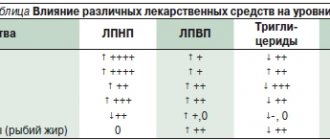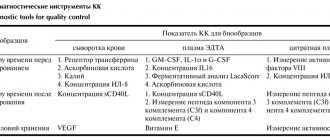According to international statistics, almost a third of the adult population faces the problem of high cholesterol as they age. Against this background, atherosclerosis develops, which is followed by a number of severe and sometimes fatal complications. The primary task of medicine is to find the most modern and effective means for the treatment of hypercholesterolemia. One of these is the prescription of Omega 3 polyunsaturated fatty acids for cholesterol. Today we will look at how they affect lipid metabolism, whether they reduce the harmful fraction of fats or not, and also how to take capsules of branded PUFAs.
What are Omega-3s and how do they affect cholesterol levels?
High blood cholesterol most often occurs as a result of poor nutrition – excess animal fats in the diet. But it is a mistake to completely abandon foods containing cholesterol, because its deficiency in the body is just as dangerous as its excess. Cholesterol is a substrate for the production of hormones, vitamins, cell walls and membranes. Nutritional supplements with Omega 3 can not only be an excellent replacement for dietary fats, but also stabilize lipid metabolism.
Omega-3 is a group of polyunsaturated fatty acids that are not synthesized in the human body . Therefore, if their route of entry is exclusively exogenous, they can be obtained by adding foods containing them to the diet. In order to highlight the hypocholesterol mechanism of the influence of Omega 3, you need to understand what they consist of.
- Linolenic acid. This is an active compound that can interact with low-density lipoproteins (the harmful fraction of cholesterol) in the bloodstream, accelerating their breakdown and excretion from the bloodstream. An additional effect is the effect on already formed atheromatous plaques - under the influence of linolenic acid they gradually decrease in size, and the affected area of the vessel regains its elasticity, tone and structure.
- Eicosapentaenoic acid (EPA). Stabilizes the tone of arteries and veins; you can drink it with high systolic pressure. Thus, Omega 3 influences another important link in the pathogenesis of hypercholesterolemia and vascular atherosclerosis - it reduces the manifestations of hypertension. Omega 3 reduces the deforming effect on the arteries and protects their walls from excessive compression. Many scientific sources describe the inhibitory effect of eicosapentaenoic acid on the development of osteoporosis.
- Docosapentaenoic acid. This compound helps restore absorption activity to the organs of the gastrointestinal tract more fully, and also helps the body stabilize the production of endogenous vitamins and other active substances.
- Docosahexane acid (DHA). This component is especially necessary during pregnancy, lactation and childhood. This acid is responsible for the adequate formation and development of the nervous system, especially the brain.
In addition to the pronounced hypocholesterol effect, PUFAs (polyunsaturated fatty acids) - Omega 3 reduce the risk of tumors, increase immunity, reduce blood viscosity, help the digestive and cardiovascular systems function properly, and reduce the risk of heart attacks and strokes. It is important to remember that only a competent treating doctor has the right to prescribe drugs containing PUFAs.
Scientific point of view
Often, a patient comes to the doctor and asks whether a particular product is beneficial or harmful in the fight against a disease. Alexander Yuryevich adheres to the point of view that this formulation is fundamentally incorrect, since these things are not comparable.
In order to understand that there is no point in asking such a question, it is worth understanding the problem posed in more detail.
What are Omega-3 fatty acids? Fats and fatty acids can be saturated or unsaturated. Saturated fats are a type of fat in which the free carbohydrates in the fat molecule are capped with hydrogen atoms. There is no such connection in unsaturated fats. Moreover, they may contain double bonds between carbon molecules that break easily, which means that such molecules react more actively. Important:
It is very important for the human body to get enough saturated fatty acids.
On the one hand, metabolism among unsaturated fats occurs faster and more actively. On the other hand, this is not very good for animal organisms (including humans), because human metabolism is complex and the consumption of unsaturated fatty acids can lead to metabolic disorders, its modification, and the release of metabolites that need to be constantly eliminated. In addition, biochemical reactions are disrupted, which can negatively affect health.
For an animal body that contains animal fat (that is, saturated), it is necessary to consume it, and not vegetable (unsaturated), since it is less suitable for humans.
Omega-3 in food
Omega 3 unsaturated acids are not produced in our body, so you can get them from food or supplements. The requirement for PUFAs is 1600 mg for men and 1100 for women. To achieve a hypocholesterol effect, this figure should be slightly higher. An analysis of Omega 3 content in food found that the largest amounts are found in the following sources:
- Vegetable-based oils - from flax, pumpkins, mustard, rapeseed, nuts, avocado. It is allowed to use it in its natural form - ground seeds of these plants also help reduce cholesterol.
- Seafood. These include primarily fatty sea fish - herring and Atlantic sardine (Omega 3-1530 mg per 100 grams of product), mackerel and salmon (up to 1300 mg per 100 grams), flounder (above 500 mg per 100 grams). This category also includes fish oil, the best known and most concentrated source of Omega 3.
- Meat products from wild animals.
- Seaweed - they are the primary source of unsaturated acids and phospholipids for fish. Therefore, it is recommended to buy natural fish rather than farmed fish. Microalgae oil is sold in pharmacies and also contains a high concentration of Omega 3.
- Chia seeds. They contain not only unsaturated fats, but also a wide group of antioxidants that have a positive effect on lipid metabolism.
What are fatty acids
Fatty acids are a kind of “building material” from which fats are directly composed. Among these compounds there are those in the absence of which adequate functioning of internal organs and systems is impossible. These are unsaturated Omega acids.
The molecules of these substances differ in their structure. They are conventionally divided into two groups:
- monounsaturated, when there is one double bond between adjacent carbon atoms (Omega-9);
- polyunsaturated, if there are two or more such bonds (Omega-3, Omega-6).
The number in the name indicates where this double bond is located. For example, in Omega-3 it is located after the third carbon atom from the end of the chain.
Unsaturated fatty acids help strengthen immune defense and preserve vision. Especially important for children. A child who consumes a sufficient amount of Omega increases resistance to stress, improves memory and concentration. Such children develop better and master educational programs.
Not many people know that fatty acids help get rid of excess weight. They provide the necessary level of “good” cholesterol and reduce the content of “bad” cholesterol. Studies have shown that these compounds stimulate metabolic processes. Food is better absorbed, the body stops accumulating “reserves”. Omega activates the synthesis of the PPAR-alpha protein, which burns subcutaneous fat and fights fatty liver.
Fatty acids are important for athletes. They increase endurance, help the heart cope with increased stress, and normalize blood pressure.
All three types of acids are needed to maintain health, since their effects are slightly different.
Omega-3 preparations in capsules
To compensate for Omega 3 in the body, you can use products from the pharmaceutical industry - patented anti-cholesterol medications. According to medical recommendations, in the pharmacy you can buy krill oil , fish oil, capsulated preparations with a concentrate of PUFAs in the form of triglycerides - Omacor, Omega-Red, Oceanol.
- California Gold Nutrition Omega-3 Fish Oil (100 Capsules).
- Solgar Omega-3 Fish Oil (240 capsules).
- Now Foods Omega-3, 180 EPA/120 DHA, (500 tablets).
- 21st Century Omega-3 Fish Oil, 1000 mg (300 capsules).
- Nordic Naturals Omega-3 Lemon Flavor, 237 ml.
These medications are taken with food. The dosage, duration of therapy and frequency of administration are determined only by the doctor. Taking into account all the features of the diagnosis, the patient’s condition, concomitant diseases, age, gender, medical history, etc., an individual treatment regimen is drawn up.
Excess fatty acids
In Russia, people rarely suffer from excess Omega-3; the opposite situation is more often observed. If there is a lot of this group of acids, a person may experience surges in blood pressure, a tendency to bleeding and long wound healing, and muscle weakness. Increased anxiety, irritability, and depression are possible.
Symptoms of increased consumption of Omega-6 and Omega-9 are similar. Eating fatty foods in large quantities causes problems such as:
- increased blood pressure;
- excess weight;
- alopecia;
- heart and vascular diseases;
- eczema;
- liver dysfunction;
- infertility;
- mental disorders;
- digestive abnormalities;
- blood thickening.
It is not possible to compensate for the lack of one fatty acid with an additional supply of another. All substances are needed, and in certain proportions.
results
- The study was completed earlier than planned due to a large number of primary events indicating a low likelihood of omega-3 PUFAs being effective.
- The average age of patients was 62.5 years, 35% were women. 70% of study participants had diabetes. The mean LDL-C level was 75 mg/dL, the mean triglyceride level was 240 mg/dL, the mean HDL-C level was 36 mg/dL, and the mean C-reactive protein level was 2.1 mg/L.
- 12,633 participants (96.6%) completed the study.
- The primary efficacy endpoint was met by 785 patients (12%) receiving omega-3 PUFAs compared with 795 patients (12.2%) receiving corn oil (hazard ratio, 0.99 [95% CI, 0.90-1. 09]; P = 0.84).
- According to the safety analysis, a greater number of gastrointestinal side effects were shown in the omega-3 PUFA group (24.7%) compared to corn oil (14.7%).
Where does the body get Omega-3 acids?
Do not self-medicate. Consult a specialist:
The beneficial compounds in question can be obtained by consuming:
- Sea oily fish. Such food should be baked in foil/sleeve or treated with hot steam. To obtain the desired result, you can eat lightly salted fish in small quantities. Pregnant and breastfeeding women should eat this food with caution.
- Pumpkin seeds. They have a balanced composition, which includes vitamins B, C, carotene, glycerides of stearic, linolenic, oleic acid, as well as resinous components. Pumpkin seed oil has a slightly bitter taste and a pleasant nutty aroma. This product is often used to lower blood cholesterol levels and treat atherosclerosis.
- Fish oil obtained from cod liver. The consistency of this product resembles vegetable oil. Fish oil has a distinct fishy taste and aroma. The concentration of nutrients in it reaches 30%.
- Walnuts are high in proteins, amino acids, carbohydrates, and vitamin C. Oil made from nuts has a similar composition to pumpkin oil. This product is recommended for use for diseases of the liver, cerebral vessels, and heart.
- Flax oils. The content of polyunsaturated fatty acids in it is an order of magnitude lower than in fish oil (about 20%). A large percentage of PUFA disappears during heat treatment. Flaxseed oil should be used as a dressing. The shelf life is limited, even if the product is stored in the refrigerator.
You get promotional code OZON - 300 points for your first order. OZONAPIE1I (applied in the cart)
Omega-3 lowers the level of low-density lipoproteins and improves the functioning of organs that participate in the process of hematopoiesis. PUFAs also have a beneficial effect on the elasticity and tone of vascular walls.
Study design
STRENGTH is a double-blind, randomized, multicenter study.
The study compared omega-3 PUFAs with corn oil in patients receiving a statin who had high cardiovascular risk, hypertriglyceridemia, and reduced HDL-C levels.
The study included 13,078 participants who lived in 22 countries in North America, Europe, South America, Asia, Australia, New Zealand and South Africa.
Study participants were randomized to omega-3 PUFA 4 g/day (n = 6539) or corn oil (n = 6539).
As a primary endpoint
looked at a composite measure of cardiovascular death, nonfatal myocardial infarction, nonfatal stroke, coronary artery revascularization, or unstable angina requiring hospitalization.
What are the benefits of fish oil? Features of the composition
Fish oil is obtained from the fatty tissue of marine fish. It contains components such as polyunsaturated fatty acids, vitamins, phosphorus, magnesium, iodine and calcium. Fish oil has important resources that support a person's physical and psychological health. It is used to prevent diseases caused by deformation or destruction of various body tissues. The benefit of fish oil is that it performs regenerative and construction functions.
It is important to ensure a sufficient intake of fish oil in the body in old age. The components it contains help reduce the rate of degenerative changes occurring in the brain. A number of studies have confirmed that dietary supplements based on this component not only slow down the deterioration of cognitive abilities, but also, 5 weeks after the start of use, provide effective results in terms of their recovery ().
Fish oil has proven to be an effective remedy for the complex treatment of psoriasis. A group of patients were offered the nutritional supplement for 8 weeks. After a course of use of the drug, a decrease in the area of affected skin was found. Patients noticed a decrease in itching and a decrease in the degree of erythema ().






